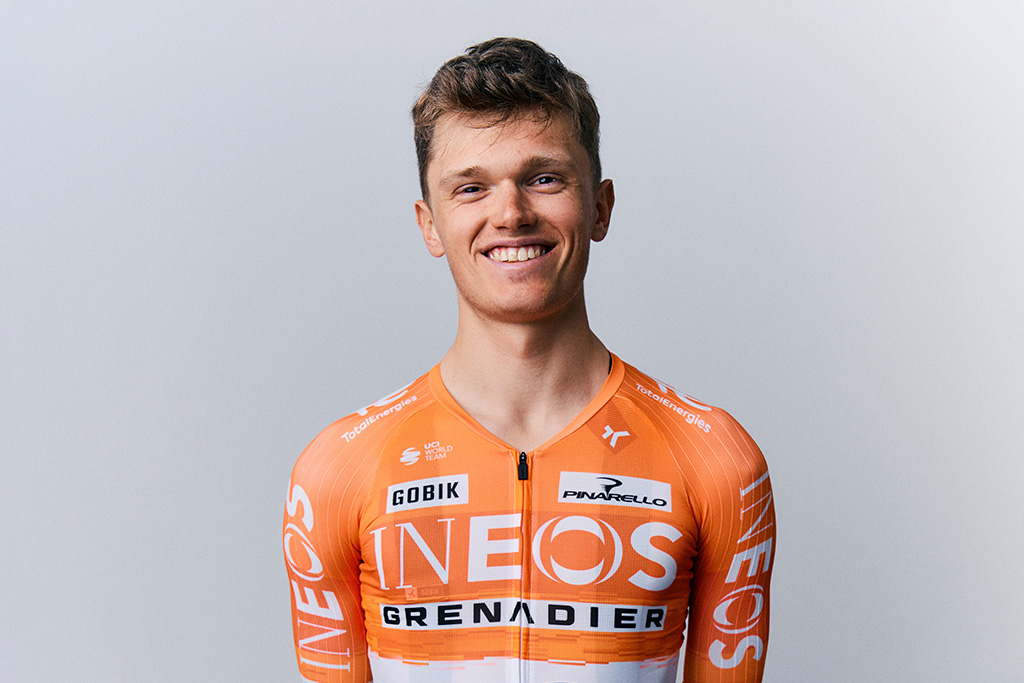Tom Dumoulin: I'll do GC at the Giro d'Italia and Tour de France
Dutchman on doubling up, picking his chances, and his development into one of the leading Grand Tour riders
The latest race content, interviews, features, reviews and expert buying guides, direct to your inbox!
You are now subscribed
Your newsletter sign-up was successful
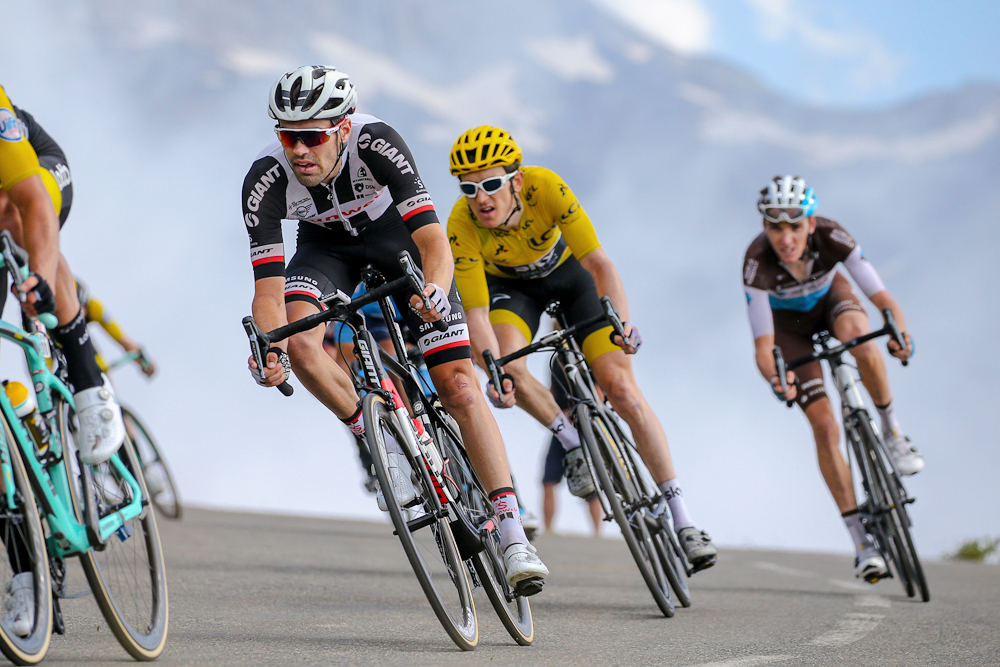
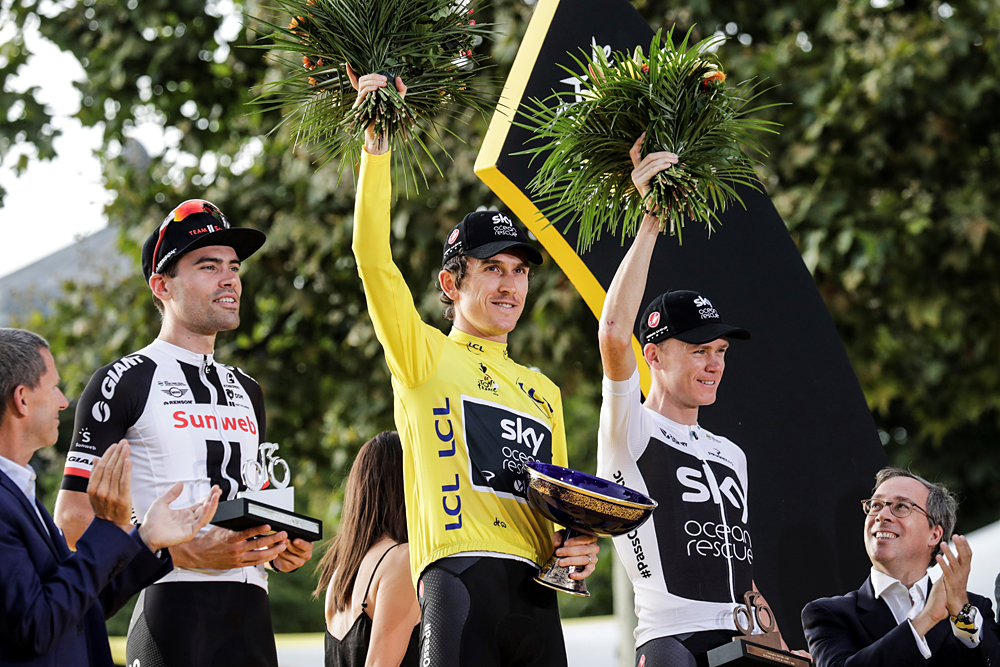
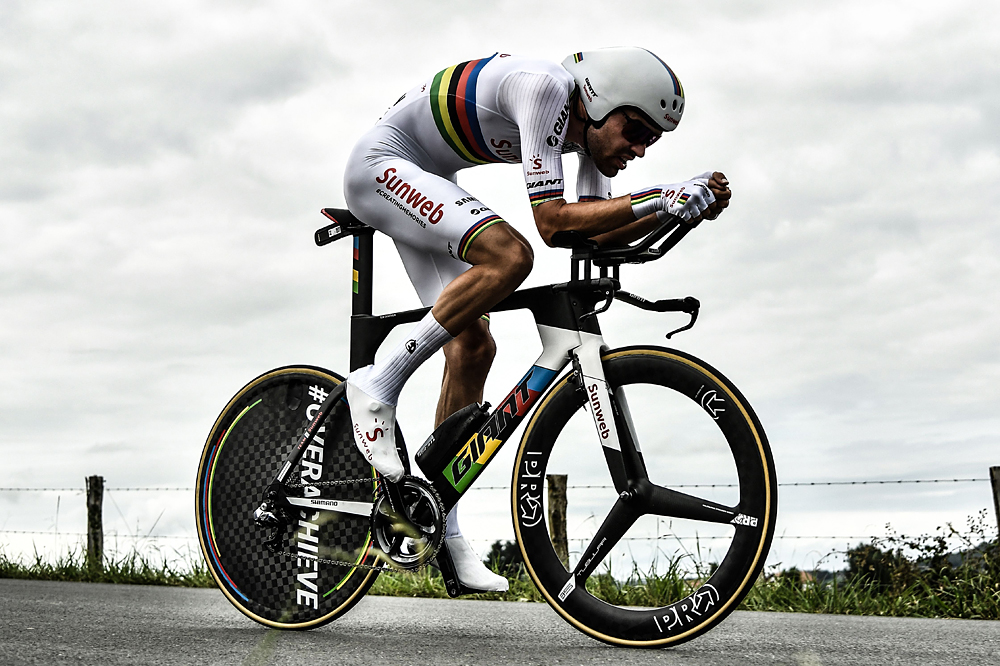
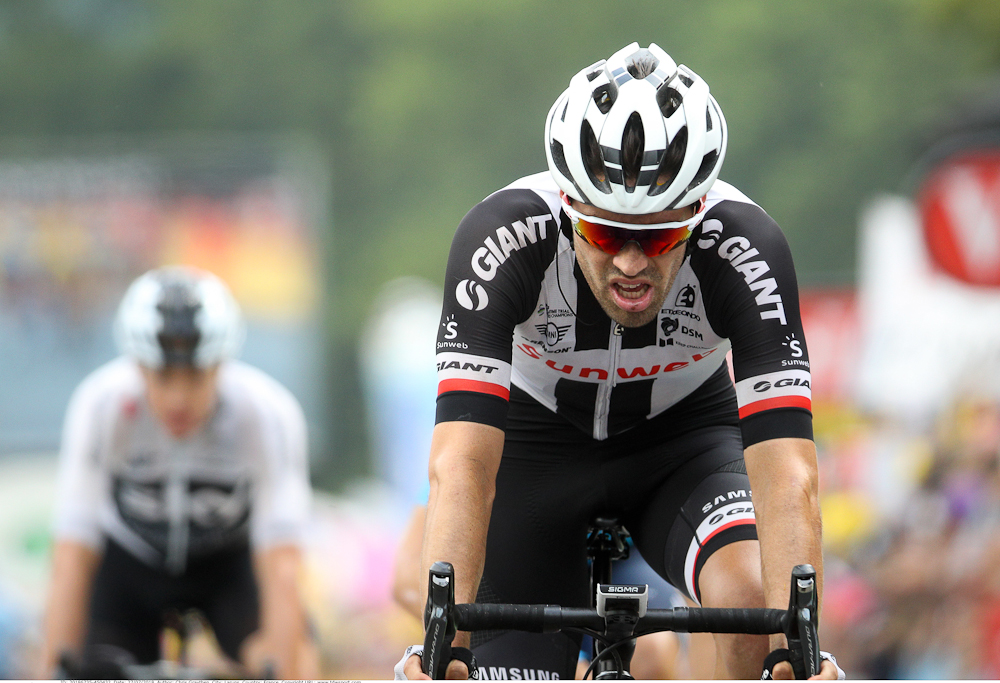
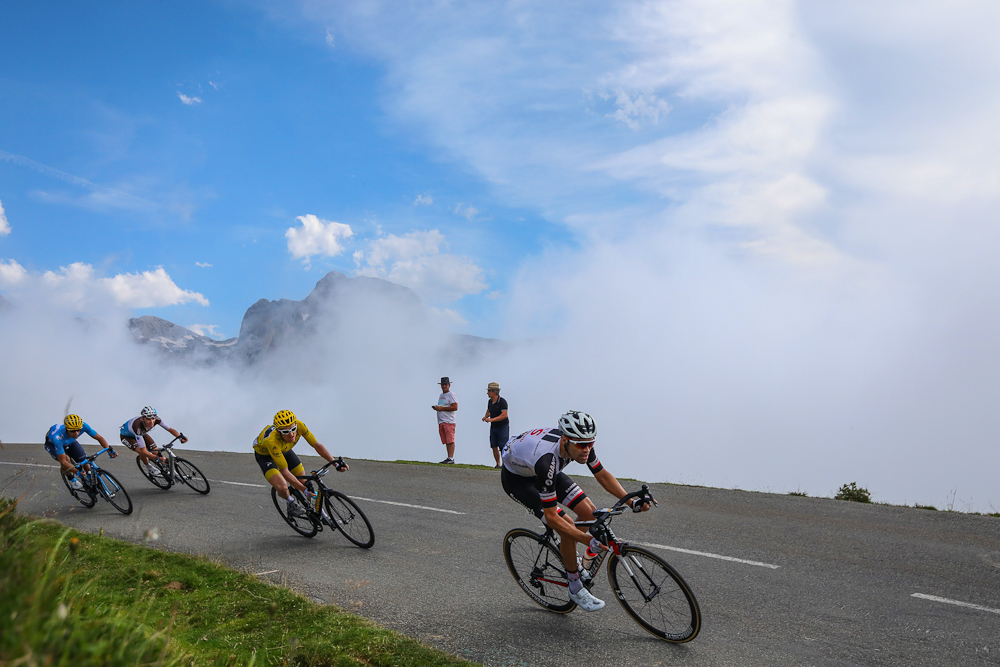
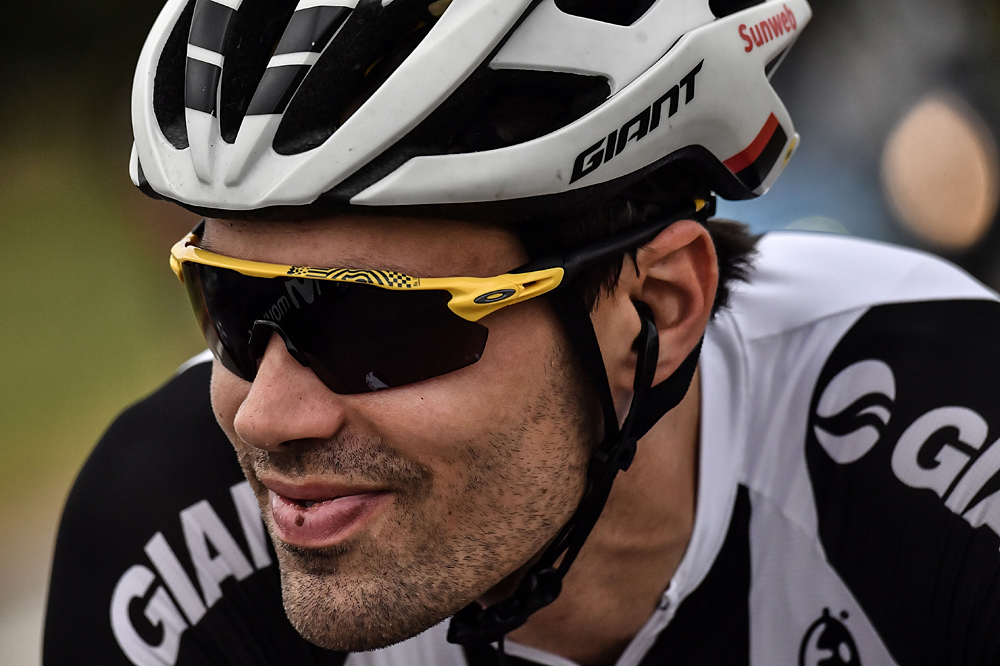
After winning the Giro d'Italia in 2017, there was no Grand Tour victory for Tom Dumoulin in 2018, but the Dutchman nevertheless established himself as one of the leading three-week racers by finishing runner-up at both the Giro and the Tour de France.
The stage looked set for a full-on crack at the Tour in 2019, but it was recently announced that the 28-year-old will once again set the Giro d'Italia as his primary objective.
Dumoulin sat down with Cyclingnews at a recent Sunweb training camp to discuss that decision, and to explain why the Giro-Tour double is still on the cards this year. The former time trial world champion also discusses his development as a rider, and how his climbing has improved to such an extent that he can now consistently match the best in the world, along with how that has caused his career to take on possibilities that were unimaginable a few years ago.
Cyclingnews: You've decided to focus on the Giro d'Italia over the Tour de France in 2019. That came as a surprise to many…
Tom Dumoulin: Yeah. I was hoping to do the Tour. I was planning on riding the Tour and just focusing on that next year, and the team was planning on doing that, but it kind of changed because of a very nice Giro parcours and a not very nice Tour parcours – maybe not in general, but for me personally.
CN: Was it frustrating, having to rip up those plans?
TD: Yeah – it definitely was. I love the Giro, so I'm definitely happy with my programme now, but we really had to reconsider our whole year.
The latest race content, interviews, features, reviews and expert buying guides, direct to your inbox!
CN: You've already won the Giro, so it would seem logical, especially after this year, that the Tour would be the primary objective of your career now.
TD: I'm not so narrow minded that I only think about the Tour and everything else is shit. I really love the Giro. Of course I would like to end my career with a Tour de France win – I would like that very much – but my career is definitely not a failure if I don't. I'm going to pick my chances smartly, and this year the Tour is not a big chance for me.
CN: The amount of time trialling at the Tour has dropped notably in recent years. How disappointing is that?
TD: I would have liked way more time trial kilometres, but I can understand their way of thinking. But you can also see that at the last two years in the Giro, they had quite a lot of time trial kilometres, and that gives you a much more open race, actually, because the race is so diverse that a rider who cannot do a good time trial needs to attack. In 2017, Quintana needed to attack me from the first day in the mountains, because he knew, 'If I don't attack him now – if I wait until the last week and the last day in the mountains – then I'm not going to gain enough time.' With more time trial kilometres, instead of closing the race down, which is what the Tour organisers think, you open it up. That's what has happened in the Giro for a couple of years already. They saw the advantages of that, but the Tour thinks differently. It's unfortunate for me.
CN: In the time trials we see big gaps still, but things seem tighter than ever in the mountains between the climbers and rouleurs…
TD: I can completely understand why we don't have 100km time trials, like decades ago, anymore, and a Tour de France like the one Bradley Wiggins won isn't going to happen in the coming years anymore. The gaps in the time trials actually seem to stay the same as they were five years ago, but the gaps in the mountains are getting closer and closer together, so then it's also not fair to put in so many time trialling kilometres – but now I think it's not enough anymore.
CN: You feel ASO's attempts to open up the Tour are counterproductive?
TD: Yes, I'm 100 per cent sure of that. If Romain Bardet wants to win the Tour, for example, and there are 70 kilometres of time trialling, he needs to attack me from day one, and he needs to attack Froome from day one, and then you get a nice, open race. But, with the course being laid out this year, he can wait until the last week, and you get a Sky-controlled race – exactly what they don't want, actually. But whatever – maybe they see it differently.
CN: What are you expecting from the Giro, with its three time trials?
TD: The Giro is very nice for me. That's one of the reasons I'm going again, because the time trials are super nice, and I love the mountain areas. The time trials are also well-suited to me – not completely flat but all pretty difficult. It's also very nice for guys who are less good in time trials, as they won't lose so much time. It's very well balanced, I think. I expect another open race.
Giro-Tour double
CN: Will you do the Tour de France as well?
TD: Normally, yes, but there's still a bit of doubt. We'll decide after the Giro whether we'll go or not, but I should do, yes. If nothing weird happens in the Giro or before, or whatever, then I'll also go to the Tour.
CN: To try to win it?
TD: The plan is to focus on the Giro for the GC, and then to also do the Tour for the GC afterwards, like last year. Last year it was very open: I didn't go to the Tour with any pressure because it was, like, 'Anything can happen.' You can also feel fatigued from Giro; I didn't really feel it last year, but it could happen this year.
CN: Will you approach the Giro any differently, with the Tour at the back of your mind?
TD: No, no. I will try to have my peak at the Giro.
CN: Last year there was an extra week between the Giro and Tour because of the [FIFA] World Cup. This year's it's the normal five weeks. Is it possible to go for both?
TD: I hope so. I'll only be able to tell you in the third week of the Tour, actually. I'm very open minded. I'll just go to the Giro to fight for the GC – that's it. Afterwards I'll just take my rest, like I should, and hopefully it's enough to be good at the Tour again. Maybe it won't be, and that's also fine.
CN: What lessons did you learn from doubling up last year?
TD: It's very difficult but also there are some advantages to it. It's three weeks very hard and focused, but in between I was actually quite relaxed. I really took time to come down from the Giro and to relax ahead of the Tour, and I didn't take too much stress to the Tour. I'm going to try to do the same again.
CN: Did you end the Tour this year on your knees?
TD: In the last few days, I was definitely struggling. I had a little bit of sickness, and some fatigue – or the sickness was caused by being really tired. With a week less between them this year, I know it's very likely in the last week that I won't be as good as I'd hope, but if I've focused on the Giro and it hopefully went well, it would already be a good season and everything else would be a bonus.
CN: No one has done the double since 1998. Did your experience last year tell you that it's possible?
TD: It's definitely possible to be good in both. The question is whether it's going to be possible with a week less between, and the other question is if it's ever going to be possible to be in top shape in both. I was close to top shape in both this year, but I was maybe lacking in the last few days of the Tour.
CN: How does the rest of your programme look for 2019?
TD: Exactly like last year. I'll start with the UAE Tour, then Tirreno [Adriatico] and Milan-San Remo. I won't do Strade Bianche. Then after San Remo I'll go to altitude, and then it's only Liège [Bastogne-Liège] until the Giro. Then after the Tour – and it depends if I do the Tour – but actually if I do it, then I don't know, and if I don't do it, we still don't know. If I still feel confident and happy about it, I would also like to focus on the World Championships time trial at the end of the year.
Becoming a top Grand Tour rider
CN: At the 2017 Giro it felt like you were limiting your losses against the climbers, whereas in 2018 it seemed you were one of the very strongest climbers in both the Giro and Tour. How have you developed as a rider?
TD: I hope I'm still a time triallist, but the balance has shifted more to climbing, and slightly away from time trialling. That's one of the main focuses this year: to keep the time trialling at the level it's at now, so that I'm still able to win time trials every once in a while – especially the harder ones. But in terms of winning Grand Tours, my biggest gain is still to be made in my climbing ability. I definitely gained a lot already over the last few years, but I hope to gain more this year.
CN: How do you measure your improvement as a climber?
TD: I couldn't put a percentage on it. I wouldn't know. I think I've got better with racing a few climbs in a row. If you sent me up a mountain like Oropa [where he won a stage at the 2017 Giro - ed], I wouldn't do better than in 2017 because it's a flat, easy day, then one time full-gas on a climb. But I would do much better on those 4,000-5,000-metre elevation days.
CN: How do you train your body for the mountains?
TD: Nothing too specific. I do longer efforts, and just ride more mountains.
CN: The fear was you'd lose your edge in the time trials, but that doesn't seem to have happened…
TD: My short time trials, and especially my flat time trials, have worsened slightly. My power has dropped a bit in those time trials, but luckily I know exactly how to ride a time trial, and where I can win time. So I'm winning time on one side but losing it with my lack of power on the flat, so it sort of evens itself out.
CN: Are you much lighter now?
TD: Not so much – maybe just one or two kilos.
CN: If 2017 was the breakthrough, was 2018 the year you confirmed yourself as one of the leading Grand Tour riders?
TD: I think so. The Giro in 2017 was kind of surprising for me and for everyone. It was also a Giro that suited me really well with lots of time trial kilometres, and I could barely hang on on the climbs. I won it, but I was definitely not the best climber. In 2018 I was definitely up there consistently with the best GC riders, and that was nice to see.
CN: How have your career ambitions changed in the past couple of years?
TD: They have completely changed. A few years back I wouldn't even think I would aim for the GC in a Grand Tour, let alone win one. But I've done that already. Now I'm thinking about winning the Tour de France one day. That's something I wouldn't have dreamed of five years ago.
CN: A couple of your domestiques have left Sunweb, and there haven't been many big signings. Do you have a strong enough team around you?
TD: I think we've even improved from last year. I think it's going to be just fine. Of course, we have half the budget of Sky – maybe not even half. Of course that makes it more difficult. They have riders as helpers who would be leaders in our team. With that big of a difference in budget, it'll always be that Sky will be the leading team in Grand Tours. Let's see how it evolves with Sky stopping their sponsorship, but it's always going to be difficult. For next year we have a strong line-up and we know what to expect. With the Giro-Tour double last year, we didn't really know I was going for the GC at the Tour, so we didn't really pick the riders to fight for the GC. Now it's clearer. Competing with Sky is always going to be super difficult, but I think we're getting closer every year and we will be closer this year.
Patrick is a freelance sports writer and editor. He’s an NCTJ-accredited journalist with a bachelor’s degree in modern languages (French and Spanish). Patrick worked full-time at Cyclingnews for eight years between 2015 and 2023, latterly as Deputy Editor.

